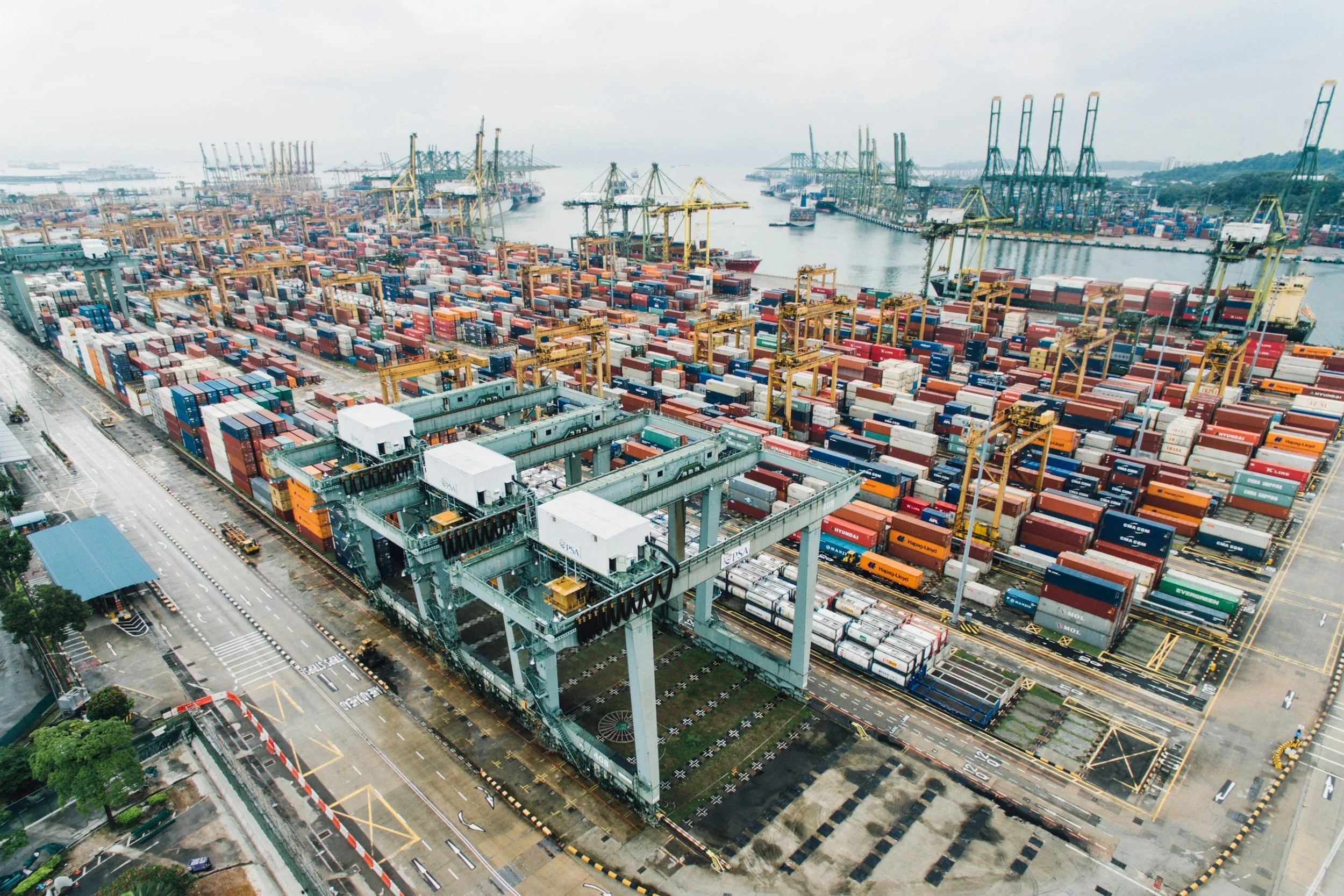Putting green hydrogen policy on the agenda at the Labour Party Conference
Last week, the SASHA Coalition headed to the Labour Party Conference to talk green hydrogen policy. With the new government less than 100 days old, we were keen to hear what’s top of the policy agenda and raise awareness of green hydrogen’s vital role in decarbonising shipping and aviation.
Mike Kane MP, Under-Secretary of State for Aviation, Maritime and Security, with SASHA Policy Assistant Sabrina Khan-Dighe, Policy Officer Nuala Doyle and Senior Director Emma Fenton at the Labour Party conference.
During our four-day stint at the Labour Party Conference, we spoke to industry delegates, NGOs and – crucially – ministers whose portfolios could help to achieve SASHA’s ambitions around decarbonisation (see the team pictured with Minister for Aviation, Maritime and Security, Mike Kane above).
It soon became clear that there is a lot of hope for Labour’s mission-driven government to start demonstrating exactly the sort of commitment needed from policymakers to grow the green hydrogen economy.
Why is green hydrogen policy so important?
Why does it have to be green hydrogen rather than other alternative fuels, and why should politicians intervene if it’s such a good idea – can’t the industry take care of it themselves? These were the questions that we heard on repeat throughout our time at the conference.
SASHA members ZeroAvia and Cranfield Aerospace Solutions were both at the conference, so we got their views.
“I think we need to see the government embrace the role of hydrogen because there’s no future for aviation without hydrogen, whether that’s as a fuel stock for sustainable aviation fuels or direct use for the application that we’re doing with hydrogen fuel cell systems for small regional aircraft,” said Scott Pendry, Director of External Relations at Cranfield. “We need government to embrace it in a way that they haven’t done to date. Even though there have been some fantastic strides that have been made, for example by the Aerospace Technology Institute for the FlyZero study, it clearly shows that there is a future for hydrogen in aviation.”
Labour’s primary mission is to kickstart economic growth. Analysis from the Global Maritime Forum has shown that by 2050 the transition to zero-emission marine fuels has the potential to create up to four million jobs across the global energy supply chain. If the government’s new industrial strategy follows SASHA’s proposals to promote clean maritime and aviation sectors it could raise over £9bn annually for the exchequer by bringing them into the Emissions Trading Scheme and adequately taxing aviation fuel.
Dominic Weeks, Head of External Affairs and Marketing at ZeroAvia, picked up on this theme, saying that it’s promising that the Labour government is focusing on an industrial strategy. “What we really want to encourage is a specific focus on clean aerospace development, because these technologies that can fly aircraft with zero emissions or just water vapour emissions are the technologies that the global aviation ecosystem is going to depend on,” he said.
Why should politicians intervene?
SASHA’s Green hydrogen gap report found that all pathways to decarbonising all distances of shipping and aviation will require green hydrogen to a greater or lesser extent. Not only is green hydrogen needed for all pathways, but the direct use of green hydrogen and fuels directly derived from green hydrogen (e-fuels) provide the greatest emission reduction potential; and don’t come with many issues associated with alternatives such as land use or biodiversity impacts.
The second Labour mission is to become a clean energy superpower and accelerate to net zero. But to do this we will need a robust supply chain for green hydrogen – especially for those hard-to-abate sectors like aviation and shipping. This also means taking responsibility to ensure that green hydrogen is not diverted away from these essential use cases into applications that would make more sense for direct electrification (for example road transport).
We have seen time and again that when governments mandate the use of particular technologies it provides certainty in the market and drives private sector investment, which means that the government won’t have to foot the entire bill. A great example was the implementation of the feed-in tariff to promote the uptake of solar PV technology.
And, possibly most importantly, the UK government is already intervening. As recently as 2020, support for fossil fuel extraction rose to £2bn. The new Labour government must end this support, that is in direct opposition to their primary missions, and level the playing field for green energy sources.
Reflections on our time at the Labour Party Conference
Over the course of four days in Liverpool two things became very clear. One, not even the terrible weather could dampen the enthusiasm of climate campaigners in bringing core issues to the government’s attention. And two, politicians from this government like Mike Kane and Bill Esterson MP (Chair of the Energy Security and Net Zero Select Committee), showed that they were keen to listen to and engage with industry players with big ambitions – like our SASHA Coalition members.
With great superpower comes great responsibility. The government can and must act in the interest of UK prosperity to achieve net zero in a just and equitable way that meets the scale and urgency called for worldwide.
Watch our video to find out more about our time at the Labour Party Conference.








